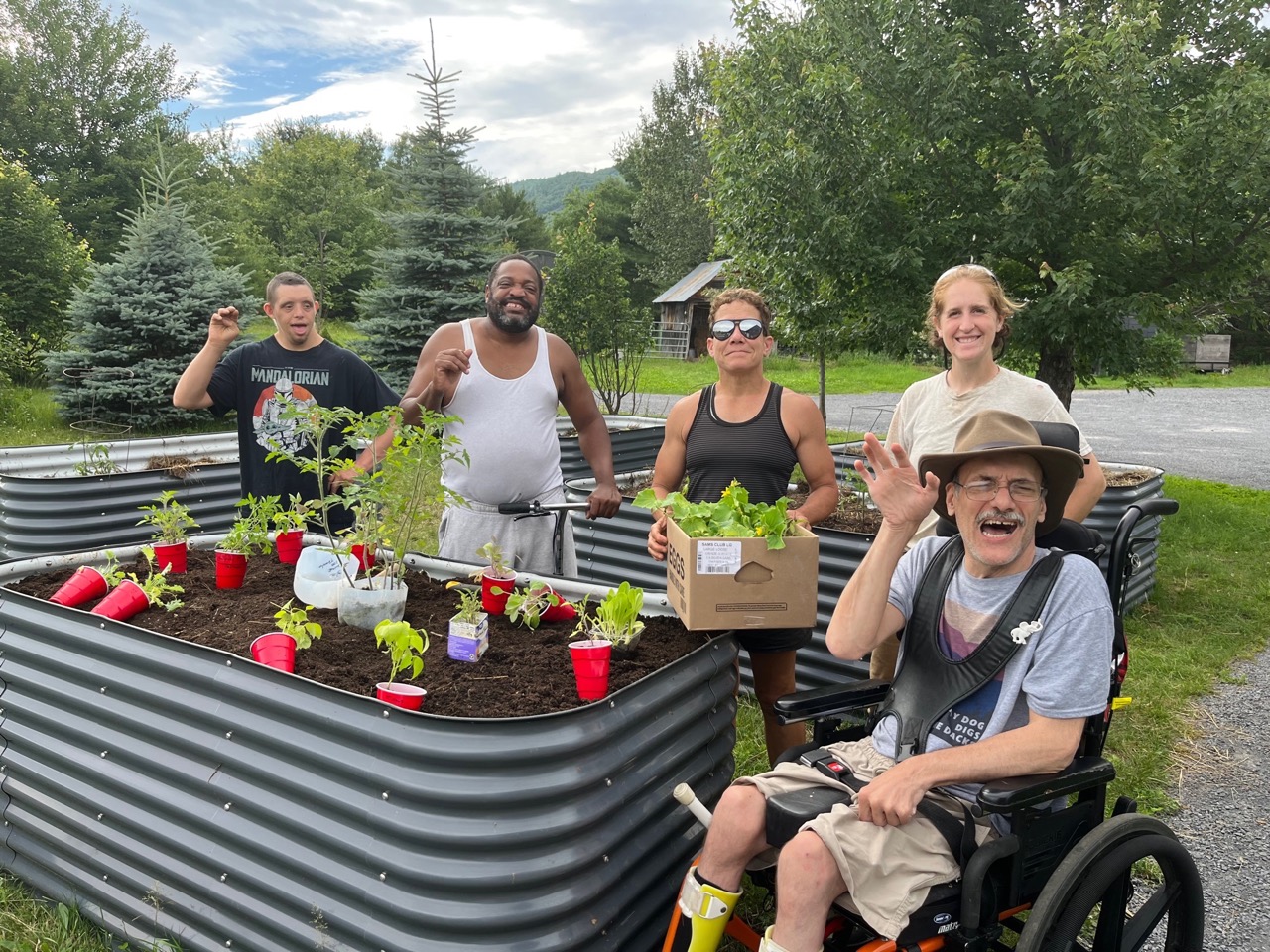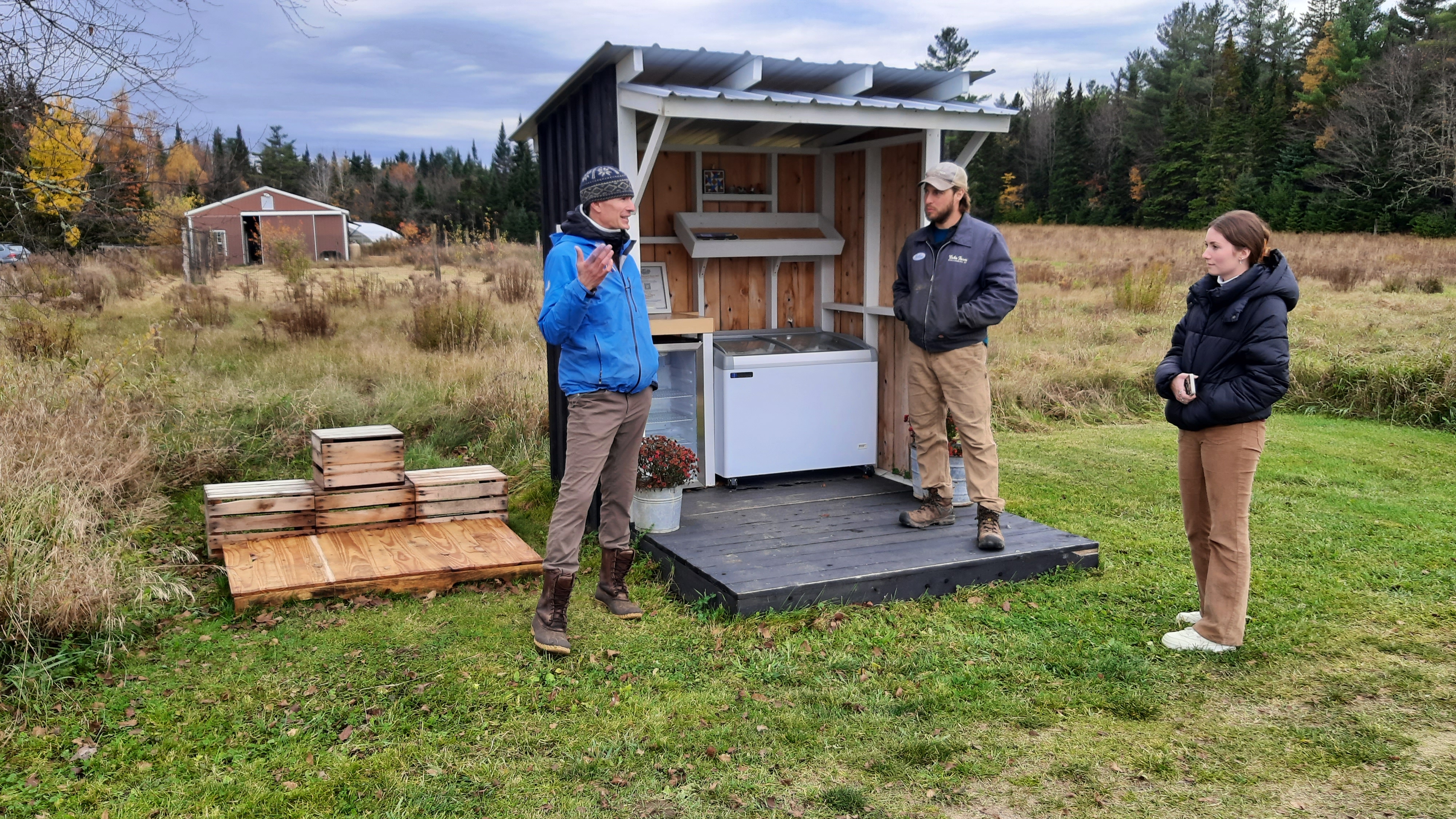
Looking back on my farm internship
By Martha DePoy - Sustainable Farms Intern
Tuesday, March 19, 2024
Last fall, as the Clarence Petty Sustainable Farms Intern, I had the incredible opportunity to meet with local farmers, learn about sustainable farming practices, and study real life examples of projects that have been implemented by farmers in the Adirondacks to promote environmental stewardship.
Walking into the Adirondack Council’s Elizabethtown office on my first day in September, I was unsure what to expect. In various college classes, I learned about the primary challenges that farmers across the globe are facing. I was aware that climate change is a major threat to the future of agriculture and thus, the future of our growing society. Although it is important to understand the complex problems that exist, it can be extremely discouraging to only be exposed to doom and gloom. However, my experience at the Council has left me with a sense of immense hope for the future. Here are some reasons we can all be hopeful!
 The Community
The Community
There is a vibrant community of sustainable farmers within the Adirondack Park. The farmers I was able to meet and communicate with were kind, passionate, and helpful people who were eager to share valuable insight into the current state of farming, and what they hope the future will look like. Many have developed programs to promote sustainable farming practices. These programs include educational opportunities to learn about topics like food justice, beekeeping, soil health, and composting. They also involve opportunities for people to pick their own fresh produce straight from the garden, enjoy a farm fresh meal outdoors, or learn to prepare baked goods with fresh ingredients. The importance of these local farms extends far beyond the obvious production of food. They also provide the community with plentiful opportunities to connect more with the environment, their food, and each other.
The Motivation
There is a strong motivation within the Adirondack farming community to protect the stunning natural beauty and ecological integrity of the Park. Numerous farmers I spoke to were passionate about regenerative agriculture, which is a culmination of practices that aim to work with the land, rather than against it. Unlike industrial agriculture, which typically diminishes soil health through monocropping and use of chemicals, small scale agriculture in the Adirondacks is committed to improving soil health, an essential component of food production.
Industrial agriculture is also a major emitter of greenhouse gases, which contribute to climate change. I was especially optimistic to learn that many farmers operating within the Adirondacks prioritize reducing carbon emissions by transitioning to renewable energy sources, stimulating carbon sequestration in the soil, and replacing inefficient technology.
 The Future is Bright!
The Future is Bright!
With so many passionate, knowledgeable, and environmentally motivated individuals comprising our local Adirondack farming community, the future must be bright! The necessary components for success are present: good people, good ideas, and good food. It benefits us all to support our local farmers, and there are so many ways you can help! As a first step, I suggest visiting one of the many beautiful and inspiring farms inside the Blue Line next time you need to stock up on groceries!
And for the farmers of the Adirondacks, be sure to apply for the Essex Farm Institute grants - applications are open now!
Looking for more ways to get involved with the Council?




